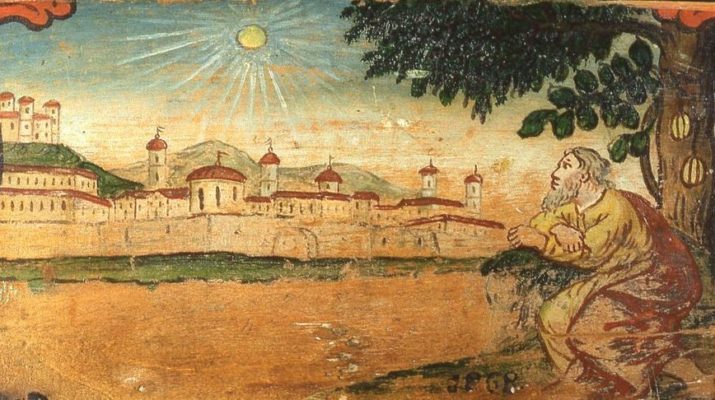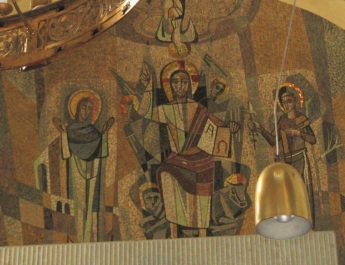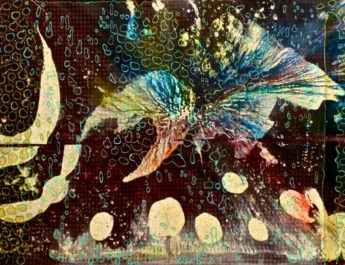Jeremiah 15:15-21
Ordinary A40
15 O Lord,A you know;B
rememberC me and visitD me,
and bring down retributionE for me on my persecutors.F
A “Lord” = YHVH. From havah (to be, become) or hayah (to come to pass, become, be). This is the name of the God of Israel, the self-existent and eternal one, the tetragrammaton. This pronunciation has been lost to time so “Lord” is generally used in its place.
B “know” = yada. This is to know, acknowledge, advise, answer, be aware, be acquainted with. Properly, this is to figure something out by seeing. It includes ideas of observation, recognition, and care about something. It can be used causatively for instruction, designation, and punishment.
C “remember” = zakar. This is to remember, to mark something so that it can be recalled, to be mindful of, to mention.
D “visit” = paqad. This is to attend to or visit – can be used for a friendly or violent encounter. So, it can be to oversee, care for, avenge, or charge.
E “bring down retribution” = naqam. This is to avenge, punish, have a grudge, execute.
F “persecutors” = radaph. This is to chase after, pursue, hunt, or persecute. It is running after someone or something, generally with hostile motives.
In your forbearanceG do not take me away;
know that on your account I sufferH insult.I
G “forbearance” = arek + aph. Literally “your slow anger.” Arek is 15x in OT. From arak (to be long in a literal or figurative sense, to continue, defer, draw out, endure, delay). This is long, patience, or slow. Aph is from anaph (to be angry; properly, breathing hard as a signifier of being enraged). This properly refers to the nose or nostril and by extension the face. It can specifically refer to anger or wrath as one breathes hard and nostrils flare in times of great anger.
H “suffer” = nasa. This to lift in a broad sense, literally and figuratively. So it could be to carry, take, or arise. It could also be bring forth, advance, accept.
I “insult” = cherpah. From charaph (to expose and so figuratively to reproach, defame, carp at, defy). This is reproach, rebuke, shame, or disgrace. It can also refer to genitals.
16 Your wordsJ were found,K and I ateL them,
and your words became to me a joyM
and the delightN of my heart;O
J “words” = dabar. From dabar (to speak, declare, discuss). This is speech, a word, a matter, an affair, charge, command, message, promise, purpose, report, request. It is a word, which implies things that are spoken of in a wide sense.
K “found” = matsa. This is to find, catch or acquire. It can also mean to come forth or appear. Figuratively, this can mean to meet or be together with.
L “ate” = akal. This is to eat, devour, burn up, or otherwise consume. It can be eating in a literal or figurative sense.
M “joy” = sason. From sus (to rejoice, be glad; properly, to be bright or cheerful). This is rejoicing, cheerfulness, and welcome.
N “delight” = simchah. From samach (to rejoice, be glad; properly, to brighten up; also used figuratively). This is joy, rejoicing, pleasure, or glee.
O “heart” = lebab. May be related to labab (to encourage; properly, to be encased as with fat; used in a good sense, this means to transport someone with love; used in a bad sense, it can mean to dull one’s senses). This is the heart, courage, one’s inner self, the mind, or the will. Heart is only used in a figurative sense in the Old and New Testaments.
for I am calledP by your name,Q
O Lord, GodR of hosts.S
P “called” = qara. This is to call or call out – to call someone by name. Also used more broadly for calling forth.
Q “name” = shem. May be from sum (to put, place, set). This is name, fame, renown. A name was thought to indicate something essential about a person – something about their individuality. So, this word can also mean honor, authority, or character.
R “God” = Elohim.
S “hosts” = tsaba. From tsaba (to wage war, serve, assemble, fight, perform, muster, wait on). This is a large group of persons (used figuratively for a group of things). It implies a campaign literally as with army, war, warfare, battle, company, soldiers. Can also be used figuratively for hardship or for worship.
17 I did not sitT in the companyU of merrymakers,V
nor did I rejoice;W
T “sit” = yashab. This is to sit and so to remain and so to dwell. It is sitting for any reason – as a judge, in order to ambush, or just sitting quietly. Causatively, this can mean settling or marrying. This can also mean continue, endure, or establish.
U “company” = sod. Perhaps from yasad (to establish, appoint, instruct; to set in a literal or figurative sense; also, to sit down together and so to consult or take counsel). This is a session, counsel, or assembly. It can also mean a consultation.
V “merrymakers” = sachaq. This is to laugh, celebrate, joke, mock, scorn. This is laughing, whether for joy or scorn. It can imply plays or holding a contest.
W “rejoice” = alaz. 16x in OT. This is to jump for joy, rejoice, triumph, or be jubilant.
under the weightX of your handY I sat alone,Z
for you had filledAA me with indignation.BB
X “under the weight” = paneh. From panah (to turn, face, appear). This is face in a literal or figurative sense. It could be face, presence, anger, respect. It can also be used of God to indicate divine favor or presence.
Y “hand” = yad. This is hand, ability, power. Hand in a literal sense, but also what one can do or the means by which one does it.
Z “alone” = badad. 12x in OT. From badad (to divide or be separated; alone, solitary, lonely, isolated, straggler). This is separation, alone, apart, isolation, secluded, desolate, or lonely.
AA “filled” = male. This is fill, satisfy, replenish, accomplish, fulfill, confirm, or consecrate. It is fill in a literal or figurative sense.
BB “indignation” = zaam. From zaam (properly, foaming at the mouth and so being enraged or angry; to curse or denounce). This is indignation, anger, fury. Also used of God’s anger at sin.
18 Why is my painCC unceasing,DD
my woundEE incurable,FF
refusing to be healed?GG
CC “pain” = keeb. 6x in OT. From kaab (being in pain, be sad, grieve, spoil, mar). This is a pain or sorrow. It is suffering whether physical or emotional.
DD “unceasing” = netsach. From natsach (something that glitters from a distance or stands out, excels, has status/standing; also to be permanent or enduring). This is properly a goal or destination as the bright focus to which one journeys. It can be splendor, truthfulness, or confidence. Most often, it refers to everlastingness, always, continually.
EE “wound” = makkah. From nakah (to hit whether lightly or severely literal or figurative; beat, punish, give wounds, kill, or slaughter). This is a wound, injury, blow. Figuratively, it could be disaster, slaughter, or pestilence.
FF “incurable” = anash. 9x in OT. This is to be weak, sick, or frail. Figuratively, it can also mean woeful or melancholy.
GG “healed” = rapha. Properly, this is to repair by stitching – figuratively this means to heal or cure. It can also mean to make whole.
Truly, you areHH to me like a deceitfulII brook,JJ
like waters that fail.KK
HH “truly, you are” = hayah + hayah. This is to be, become, or happen. The word is repeated twice – the first time as an Infinitive Absolute. The Infinitive Absolute serves to emphasize the sentiment of the word. It is rather like Foghorn Leghorn’s speech pattern, “I said, I said.”
II “deceitful” = akzab. 2x in OT. From kazab (to lie, be false or in vain, to fail; to deceive in a literal or figurative sense). This is deceptive, disappointing, or a falsehood. It can imply treachery.
JJ “brook” = mayim. This is water, waters, or waterway in a general sense. Figuratively, it can also mean juice, urine, or semen.
KK “fail” = lo + aman. (There is a “not” before this verb). This is to believe, endure, fulfill, confirm, support, be faithful. It is to put one’s trust in, be steadfast. Figuratively, this is to be firm, steadfast, or faithful, trusting, believing, being permanent, morally solid. This is where the word “amen” comes from.
19 Therefore thus says the Lord:
If you turn back,LL I will take you back,MM
and you shall standNN before me.OO
LL “turn back” = shub. To turn back, return, turn away – literally or figuratively. Doesn’t necessarily imply going back to where you started from. This is also the root verb for the Hebrew word for repentance “teshubah.”
MM “take…back” = shub. Same as “turn back” in v19. See note LL above.
NN “stand” = amad. This is to stand up in a literal or figurative sense. So it can be establish, continue, endure, take a stand, act, be a servant, stand still, remain, stand against an enemy.
OO “before me” = paneh. Literally “before my face.” From panah (to turn, face, appear). This is face in a literal or figurative sense. It could be face, presence, anger, respect. It can also be used of God to indicate divine favor or presence.
If you utterPP what is precious,QQ and not what is worthless,RR
you shall serve asSS my mouth.
It is they who will turnTT to you,
not you who will turn to them.
PP “utter” = yatsa. This is to go or come out, bring forth, appear. It is to go out in a literal or figurative sense. Here, it is in a causative case (i.e. “make to go out”).
QQ “precious” = yaqar. From yaqar (to be precious, costly, rare, valued; properly, to be heavy; figuratively, valuable or inhibit). This is precious, splendid, noble, weighty, or rare. It is valuable in a subjective or objective sense.
RR “worthless” = zalal. 8x in OT. This is to quake or blow down as something is shaken with the wind. Figuratively, it can refer to someone with shaky morals, a prodigal one, a glutton.
SS “serve as” = hayah. Same as “are” in v18. See note HH above.
TT “turn” = shub. Same as “turn back” in v19. See note LL above.
20 And I will make you to this peopleUU
a fortifiedVV wallWW of bronze;XX
UU “people” = am. From amam (to darken, hide, associate; creating shadows by huddling together). This is people or nation. It can be used specifically for a tribe, collectively of troops or armies, or figuratively to refer to a flock of animals.
VV “fortified” = batsar. This is to enclose, wall up, or make something inaccessible, impenetrable, isolated. It can also mean to fortify, something mighty. It can also mean to gather grapes.
WW “wall” = chomah. From the same as cham (father-in-law – one’s husband’s father; perhaps from a root meaning to join). This is a wall – a wall as used for protection.
XX “bronze” = nechosheth. Perhaps from nechushah (copper, bronze, brass – something made from this metal like a coin or fetter; something that is considered base in contrast to gold or silver.; from nachush (made of bronze or brass, coppery; figuratively, hard); from nachash (to divine, interpret omens, learn from experience, observe; to hiss). This is bronze, copper, steel, brass or something made from copper. So, it could be a coin or chains. It can also figuratively mean something considered lesser in contrast to gold or silver.
they will fightYY against you,
but they shall not prevailZZ over you,
for I am with you
to saveAAA you and deliverBBB you,
saysCCC the Lord.
YY “fight” = lacham. This is to eat or feed on. Figuratively, it is to battle as a kind of consumption/destruction.
ZZ “prevail” = yakol. This is to be able, endure, overcome, prevail.
AAA “save” = yasha. To deliver, defend, help, preserve, rescue, be safe. Properly, to be open, wide or free, which implies being safe. Used causatively, it means to free.
BBB “deliver” = natsal. This is to snatch someone or something away in a good sense – as rescue, defend, or deliver – or in a bad sense – as strip or plunder.
CCC “says” = neum. From na’am (to speak a prophecy; properly, to whisper, which implies saying an oracle). This is an utterance or speaking an oracle.
21 I will deliver you out of the hand of the wicked,DDD
and redeemEEE you from the graspFFF of the ruthless.GGG
DDD “wicked” = ra’. From ra’a’ (to be evil, bad, afflict; properly, to spoil – to destroy by breaking into pieces; figuratively, to cause something to be worthless; this is bad in a physical, social, or moral sense; that which displeases, to do harm or mischief, to punish or vex). This is bad, disagreeable, that which causes pain, misery, something having little or no value, something that is ethically bad, wicked, injury, calamity. This refers to anything that is not what it ought to be – a natural disaster, a disfigurement, an injury, a sin.
EEE “redeem” = padah. This is to sever, which is to say to ransom. To secure someone’s release (by paying their debt to free them from slavery) and thus redeem, rescue, deliver, preserve. Can also be the redemption price.
FFF “grasp” = kaph. From kaphaph (to bend – from a root meaning curve or bend down). This is palm of the hand or sole of the foot, footstep, grasp. Figuratively, it can also mean power.
GGG “ruthless” = arits. From arats (to tremble, dread, stand in awe, oppress, harass). This is awe-inspiring or terror-inducing, ruthless, tyrant, oppressor, violent, powerful.
Image credit: “Jeremiah – Beehive Ending” by unknown artist, 1868.




